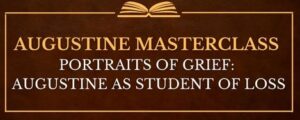May 28, 2025
Augustine Lecture Series with Fr. Robert Dodaro Fall 2025

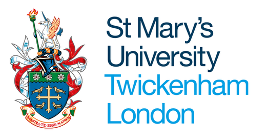
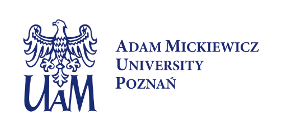


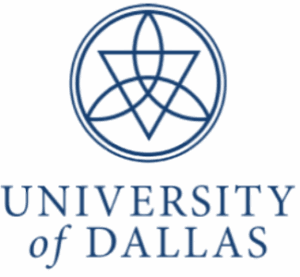
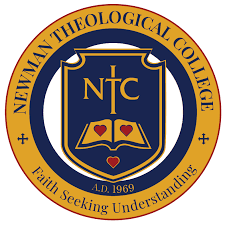
Join us for a public online (Zoom) lecture!
The City of God
A Contemporary Reading of Augustine's Political Vision
with
Rev. Dr. Robert Dodaro, OSA
Visiting Professor of Theology, Newman Theological College
Sept. –Dec. 2025, Tuesdays 8:30 A
M – 11:25 AM (Edmonton Time)
REGISTER FREE OF CHARGE HERE: https://forms.gle/qb6yrWzuNhduuNTD7 or EMAIL pablo.irizar@newman.edu

Lecture Series Schedule
Sept 9 – Introduction to Saint Augustine
Sept 16 – Political Leadership
Sept 23 – Fear of Death and National Security
Oct 7 – Christianity and the Just Society
Oct 14 – The City of God and the Earthly City
Oct 21 – Church and State
Oct 28 – Public Confession and Statecraft
Nov 4 – Heroism in Society
Nov 18 – Christ and Justice
Nov 25 – Saints and Sinners
CONVENERS
Pablo Irizar (Vice President & Academic Dean, Newman Theological College) ˑ Anthony Dupont (Augustine Chair & Research Professor of Christian Antiquity, KU Leuven) ˑ Harry Schnitker (Senior Lecturer in Church History at St. Mary’s University, PhD program director at Maryvale Institute) ˑ Mateusz Stróżyński (Director & Professor of Classics at the Institute of Classical Philosophy, UAM) ˑ Paul Camacho (Associate Director at the Augustinian Institute & Professor of Philosophy, Villanova University) ˑ Richard Dougherty (Dean of Braniff Graduate School & Professor of Politics, University of Dallas) Edmund Stewart (Associate Professor of Ancient Greek History & Collaborator of Tyrannica at the Centre for Spartan and Peloponnesian Studies, University of Nottingham)
May 12, 2025
New City Press Flash Sale on Augustine’s Sermons
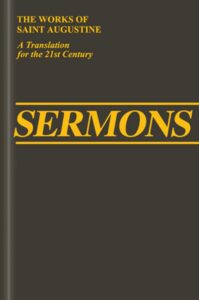 on all Augustine’s sermons! Happening now until May 19.
on all Augustine’s sermons! Happening now until May 19.April 16, 2025
Augustine Masterclass | “Portraits of Grief: Augustine as Student of Loss”
- Date: Wednesday, May 14, 2025
- Time: 1:00 PM EST (90 minutes)
- Format: Introductory remarks, passage commentary, live Q&A
- Panelists: James K. A. Smith, Paul Camacho, Colleen Mitchell, Allan Fitzgerald, O.S.A., James Wetzel, and Jessie Pagan
To learn more about the webinar and register, visit this link.
April 8, 2025
Focolare 30% Off Sale on The Works of Saint Augustine
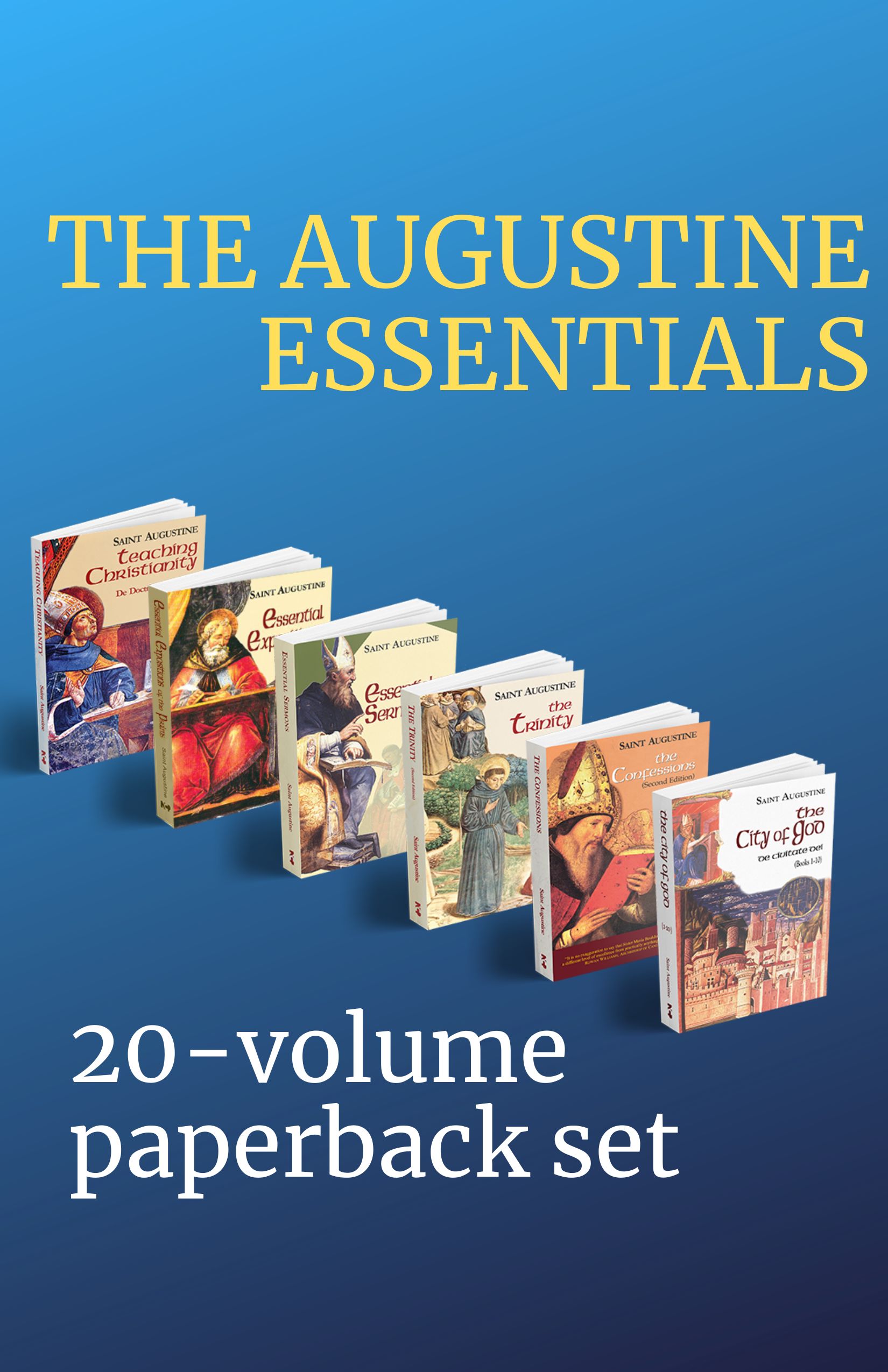
September 9, 2024
New Princeton Seminar Series: Thinking Politically with Augustine
The Princeton Seminar Series Thinking Politically with Augustine turns to the past to explore the perspectives of Augustine (354-430 C.E.), a revered and intellectual predecessor in the faith. Through the lens of this prolific author, seminar participants will gain refreshed insights into citizenship, political humility, and the Christian journey as a pilgrimage. Over four sessions, we will closely read and critically discuss excerpts from City of God, a selection of sermons and letters, and a piece of contemporary Augustine scholarship.
Anyone who is theologically curious - whether you are a Christian lay leader, pastor, retired pastor, or someone of little to no religious affiliation - is invited to enroll. All are welcome! We anticipate meaningful interfaith encounters and engagement across the spectrum of spiritual commitment.
For further details about the seminar and how to enroll, see the website here.
February 14, 2024
New Edited Volume on “Augustine and Ethics”
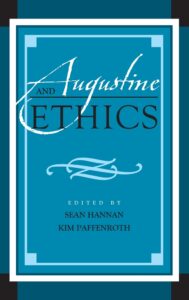
Be sure to check out Augustine and Ethics, a newly released volume in the Augustine in Conversation: Tradition and Innovation Series by Lexington Books. Edited by Sean Hannan and Kim Paffenroth, this volume:
"includes reflections on virtue and vice, love and sin, and the political outcomes to which certain ethical stances tend to give rise. For Augustine himself, ethics was never merely theoretical. Ethical concerns are concrete; and ethical solutions should be practical. Accordingly, this volume gives Augustinian ethical arguments realization by connecting them to modern anxieties about ministry, health care, diet, and incarceration."
Source: Augustine and Ethics, Lexington Books
December 5, 2023
Interview with Michael Lamb
A recent book A Commonwealth of Hope: Augustine's Political Thought offers a thoughtful examination of the importance of hope in Augustine's thought while challenging interpretations that view Augustine as a pessimist. Below is an interview with the book's author, Michael Lamb, about what he learned in writing this book and why he thinks it's important for us to take greater account of hope:
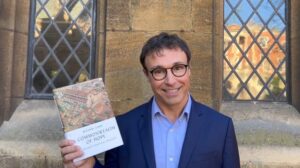
Q: When did you first read Augustine, and do you remember what your first impression of him was?
A: My first impression of Augustine wasn’t positive. I read portions The City of God in a “Search for Values” course in college, where I remember learning about the “two cities” and thinking that Augustine was too much of a pessimist for me. His thought seemed too dark and world-denying, and his view of human nature too bleak. I was more drawn to thinkers who emphasized the possibilities of virtue rather than depths of vice.
But in graduate school, I began to see a more nuanced and hopeful picture of Augustine. Reading texts beyond City of God, situating his thought in his own context, and understanding how the former professor uses rhetoric to shape the character of his readers helped me see new ways of understanding his texts and recognize how some ideas have been misinterpreted. My book aims to help readers—like the younger version of myself—understand what Augustine was saying and doing within his context and why that might be relevant to us today. I want to show how Augustine can actually help us to develop more robust and realistic hope.
Q: Your book A Commonwealth of Hope: Augustine’s Political Thought challenges pessimistic interpretations of Augustine. What do you think we learn when we look at Augustine and his thought through a lens of hope?
A: I think we see a more holistic vision of Augustine and a more nuanced account of hope. In particular, we see a theologian who is not singularly focused on sin but who also recognizes the goodness of the world. We see a philosopher who is drawing on the Roman and Christian traditions to offer a sophisticated virtue of hope as a virtue and identify the vices that oppose it. We see a skillful teacher and trained rhetorician who is not simply indicting the world with vivid descriptions of its evils but offering rhetorical contrasts to shape his audiences’ hopes and loves. And we see an engaged bishop who, rather than being “antipolitical” and “otherworldly,” is heavily involved in Roman public life, hearing cases in the bishop’s court, writing letters to Roman officials, advocating on behalf of the poor, and serving his fellow citizens in North Africa. So, when we put Augustine in his own context, we see a much more complex and instructive thinker who can offer valuable resources for thinking about hope and politics in our time.
Q: Your book seeks to speak to both theologians and political theorists who are interested in Augustine. Why do you think it is important to bring these different scholarly readers together? How do you hope to engage them?
A: Augustine lived before any division between academic disciplines, so he didn’t distinguish between theology and political theory. His theology is inseparable from his politics, yet many political theorists tend to ignore his theology and focus on works that seem most “political,” such as The City of God. The result is that they inherit a truncated and often distorted view of Augustine’s thought. Meanwhile, many scholars in theology and religious studies focus on the theological foundations of Augustine’s thought without necessarily considering their political implications or applications. My hope is to bring insights from both fields together so that we might develop a more contextualized and comprehensive account of Augustine’s views.
I also hope this cross-disciplinary work will help scholars benefit from recent developments in both fields. The last two decades have seen a revival of scholarship on Augustine within theology and religious studies, but much of this work has not yet been engaged by political theorists, who often draw on the mid-20th-century interpretations of realists such as Reinhold Niebuhr and Herbert Deane. Moreover, political theorists tend to read only narrow selections of City of God (especially Book 19) that focus on Augustine’s diagnosis of evil and ignore more “theological” texts where he offers nuanced applications of key concepts such as hope. As a result, their more “pessimistic” accounts do not capture Augustine’s complex vision of faith, hope, or love or its implications for politics. Bringing recent research from theology and religious studies into political theory can offer a more nuanced portrait.
As a political theorist, I also want to show how important concepts from political theory can help us understand some of Augustine’s key ideas and extend them in politically relevant ways. For example, in the book, I suggest that Cass Sunstein’s idea of “incompletely theorized agreement” better captures Augustine’s understanding of the agreement that unites a commonwealth than interpreters’ frequent analogies to John Rawls’s political liberalism. Ultimately, my hope is to show how political theory can offer valuable resources to the study of Augustine and how the study of Augustine can be relevant to political theory. We can learn a lot, I believe, by engaging Augustine’s thought from an interdisciplinary perspective.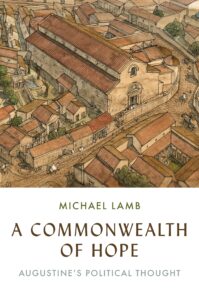
Q: In your book, you suggest that Augustine remains influential for thinking about our politics today. What is one thing in particular you think Augustine can teach us?
A: One of his most important lessons is that hope is a virtue. Too often in public life, we tend to think hope is the same as optimism or positive thinking. Then we either embrace optimism, which presumes that what we hope for will certainly come true, or we recognize optimism’s dangers and instead embrace pessimism, which expects the worst to happen.
We often think we must choose between one or the other, but Augustine offers a way beyond this binary by showing how the virtue of hope avoids the vices of presumption and despair. Some forms of optimism actually reflect presumption, where we hope too much for a particular good or too much in someone to help us attain it. And some forms of pessimism reflect despair, where we lack hope and give up too easily or too soon. As a virtue, hope enables us to resist both vices by regulating our desires for future goods and ordering them in the right ways at the right times.
Of course, for Augustine, the most important goods are eternal goods: God is the ultimate object and source of hope. But he also recognizes that human beings should hope for temporal goods and in human neighbors, so long as they order these temporal hopes properly to God. This means that, contrary to those who assume Augustine’s hope is focused solely on heaven, he affirms the importance of hoping for particular political goods such as justice and peace and in fellow citizens to pursue and protect them. And in his own example as a bishop and citizen in the Roman empire, he embodies this hope for political goods. Part of my aim in A Commonwealth of Hope is to show how Augustine’s ideas and example illuminate a realistic approach to politics that is aware of evil but also attuned to the possibility of goodness.
Q: Why is hope important, particularly for politics?
A: Well, if we presume that particular political outcomes are likely or certain, we risk being complacent, thinking they are easily within grasp. When difficulties arise, as they inevitably will, our hopes are then dashed, leading us into despair. And if we despair about overcoming major challenges, then we won’t do the work necessary to address them. We need the virtue of hope to avoid the complacency of both presumption and despair. Hope motivates action. We only act to realize specific outcomes if we have some hope of achieving them.
Q: Did you learn anything about yourself in the process of writing this book?
A: Absolutely--too much to describe here. But two lessons stand out.
First, I learned how to be more hopeful, not in a naïve way but in an Augustinian way. As I came to understand hope as a virtue, I became more alert to temptations toward presumption and despair in my own life and more equipped to register and resist them. When I was younger, I was more idealistic about politics and did not fully recognize the distorting effects of power and self-interest in politics. Serving as chief of staff for political campaigns opened my eyes to these realities while also showing me that there are people who really do care about the right things and seek public office for the right reasons. I could no longer be optimistic, but I couldn’t be pessimistic either. Augustine’s virtue of hope gave me a more nuanced vocabulary for evaluating my own hope and enacting it in my own life.Second, as I studied Augustine’s use of rhetoric as a writer, preacher, and teacher, I became much more attentive to how I use rhetoric in my own pedagogy and prose. Augustine, for example, frequently diagnoses our difficulties in ways that disrupt presumption yet also offers grounds of hope to help us resist despair. This strategy of taking readers “into hell” but also “out again”—what Kenneth Burke calls a “structure of encouragement”—can offer a valuable model for us today. We are often quick to diagnose and lament all the problems we see, but in offering a vigorous critique, we sometimes fail to identify reasons for hope or provide positive examples of how to address the challenges, which tends to leave us in despair. Augustine takes a different approach, acknowledging challenges without being debilitated by them. As I studied his work, I thought more about how I could employ a “structure of encouragement”—whether in writing an article, giving a speech, or providing feedback on student essays. Writing this book helped me to see how rhetoric forms us in ways we often do not recognize.
Q: Do you have a favorite passage from Augustine’s writings?
A: One of my favorite passages is from Sermon 80: “Bad times, hard times—this is what people keep saying; but let us live well, and times shall be good. We are the times: such as we are, such are the times.” When we look around and see all of our problems, we often tempted—rightly—to despair. But Augustine reminds us that we are not passive victims of our times but active citizens who can shape them by how we live. If we are the times, then we must embody the character and leadership needed to make them good. That is a profound call for civic action and virtuous hope.
Michael Lamb is the F. M. Kirby Foundation Chair of Leadership and Character, Executive Director of the Program for Leadership and Character, and Associate Professor of Interdisciplinary Humanities at Wake Forest University
November 29, 2023
Call for Papers: Canadian Society of Patristics Studies
The Annual Meeting of the Canadian Society of Patristic Studies will take place from May 27-29, 2024, at the downtown campus of Saint Augustine’s Seminary in Toronto, Ontario, located at Alumni Hall, 121 St. Joseph Street, Toronto ON M5S 3C2. (Please note that we will not be meeting with Congress this year in order to better facilitate the needs of our members for 2024.)
This year’s meeting will take place in person, with some capacity for virtual presentations and virtual access to in-person sessions via Zoom. Papers are invited on any theme relevant to the study of late antiquity, patristic studies, or the study of Christianity between the second and seventh centuries CE. Papers are presented in English or French. The time allotted for presentation and discussion is 30 minutes (papers are expected to be 20-25 minutes). The proposed title, an abstract of approximately 100 words, and an indication of audio-visual and accessibility requirements should be emailed to the programme coordinator, Sean Hannan (csps.acep.2023@gmail.com) by 31 January, 2024. Please indicate in your email whether you plan to attend virtually or in person.
Beyond the general pool of submissions, papers are solicited for two special sessions at our 2024 meeting as well as a joint seminar (held during Congress 2024). The special sessions are on the topics of “Trauma and Therapeia in Early Christian Writings” and “Ecology and Patrology.” Please indicate in your email whether your submission is intended for one of these sessions. The joint seminar is coordinated with the Canadian Society of Biblical Studies (CSBS), entitled “A Celebration of the Life and Work of Harold Remus,” with a focus this year on “Semantics and Boundaries at the End of Antiquity.” It will be hosted by CSBS at Congress in Montreal (June 17-19), with virtual delivery as an option. See below for more information about the special sessions and joint seminar.
Students are encouraged to submit their papers for the Student Essay Prize ($200.00 and a one-year membership in the society). The essay must not have been published or presented elsewhere. Both graduate and undergraduate essays by registered students will be considered. A letter of conformation of student status from a professor is required.
For further details, see the CSPS website.
November 16, 2023
Interview with Augustine Translator Robert P. Kennedy
Our friends at New City Press, a cosponsor of The Augustine Blog, announced recently that this month they are publishing the 45th volume in their landmark translation series The Works of Saint Augustine: A Translation for the 21st Century. This latest volume, Morality and Christian Asceticism, includes five Latin-to-English translations by Robert P. Kennedy: De mendacio, Contra mendacium, De opere monachorum, De utilitate jejunii, and De patientia. Below is an interview with Kennedy that offers insight about his relationship with Augustine and translation process:
Q: When did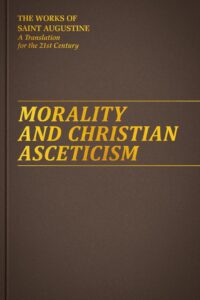 you first start reading Augustine and do you remember which of his works you read first?
you first start reading Augustine and do you remember which of his works you read first?
A: I was fifteen or sixteen when I first read Augustine’s Confessions in Rex Warner’s translation. I was bothered by the problem of evil. A family friend and Catholic priest loaned me a modern theological work (whose title and author I have long since forgotten), but I thought the argument simplistic. I don’t know who recommended the Confessions, but I do remember my fascination with Augustine’s story of his life and my feeling that he was honestly and profoundly tackling the problem of evil in Book VII. I also read and enjoyed the Pusey translation a few years later. I did not read much else of Augustine until I was in graduate studies.
Q: What are some things about Augustine’s writing you think can get lost in translation between Latin and English?
A: I am mainly interested in Augustine’s thought rather than his style. One example that comes to mind is the connections among concepts: When Augustine defines time as a “distention of the mind” (distentio animi) in the eleventh book of his Confessions he clearly has in mind the relationship between distendere, attendere, and extendere. Such connections are much clearer in the Latin than in an English translation. Conversely, even a good translation will inadvertently suggest connections where none exists.
Q: As a translator, how do you balance trying to convey precisely the content of Augustine’s ideas without losing his sense of style and the rhythm of his Latin prose?
A: My goal was to produce a translation that my upper-level undergraduate students could read without much difficulty. In other words, my focus was on a readable English text, with little attention to capturing the style of Augustine’s Latin. I devoted a lot of time to rendering Augustine’s long periodic sentences into shorter declarative English sentence structure. Sometimes, in order to reveal the meaning of the Latin I found it necessary to supply names or nouns for pronouns and to rearrange the sequence of ideas. An exception to this practice was translating Augustine’s characteristic brief and striking statements of his argument: His famous pondus meum amor meus (Conf. XIII,9,10), for example, might be translated “my attraction to good things pulls me in one direction or another” but this loses the impact of the brief, if somewhat enigmatic, “my weight is my love.”
Q: Are there any particularly challenging words/concepts to translate into English?
A: Oddly enough, I gave a lot of thought to the translation of enim. Augustine uses the word some 128 times in The Work of Monks, and it seemed at first tedious to translate it consistently as “for” (as in the English, “for he’s a jolly good fellow”). Even worse, I thought, would be to translate it sometimes as “It is for this reason that” or some such phrase. Other translators justifiably treat the word almost as a filler, translating it “you see” – this captures the fact that the word is post-positive, never the first word of a sentence. So, in Chapter 25 of The Work of Monks, Augustine states, Omnium enim Christianorum una respublica est, which could be rendered, “There is, you see, one commonwealth of all Christians.” In the end, however, I decided to stay with “for” because Augustine seemed to me to be using the word as a rhetorical device to call attention to the reasonableness of his position (and the unreasonableness of the wayward monks in their refusal to work).
Robert P. Kennedy is Associate Professor of Religious Studies at St. Francis Xavier University.
October 25, 2023
New from NCP: Volume 45, Morality and Christian Asceticism
Our friends at New City Press, a cosponsor of The Augustine Blog, announced recently that they will be publishing in November the 45th volume in their landmark translation series The Works of Saint Augustine: A Translation for the 21st Century. The newest volume is titled Morality and Christian Asceticism. We thought blog readers would enjoy a sneak peek at the volume, so below you will find the Introduction to the volume written by Series Editor Boniface Ramsey. He gives helpful background on the nine writings by Augustine that are included in the volume and explains their inclusion in the volume.
Intr oduction
oduction
The Christian writers of the first few centuries, Augustine among them, would not have intentionally placed their writings under headings like “moral” or “ascetical,” which were divisions within theology that were not formally recognized until after the Middle Ages. Nonetheless, the early Christian writers frequently focused on themes that would fall within the current categories of morality and asceticism, just as they did on others, and it is convenient for us today to group their writings together in some sort of thematic order. Hence this collection of Augustine’s moral and ascetical writings, which, however, do not exhaust the categories. There are more of the same, for example, in another volume in this series entitled Marriage and Virginity, and numerous other writings of Augustine, besides the ones in these two volumes, devote large amounts of space to moral issues and occasionally to ascetical issues. Indeed, nothing less than the mighty City of God can be seen as one long moral treatise.
Seven of the eight works in this volume have to do with obviously moral/ascetical issues. In terms of influence, the first two of these seven, Lying (De mendacio) and Against Lying (Contra mendacium), are certainly the most important. Augustine’s absolutist understanding of truthfulness and his uncompromising strictures against deception in any of its forms have shaped Western thinking and acting to this day. As for The Christian Combat (De agone christiano), which is in two parts, only the first part deals with Christian morality, which Augustine describes as a combat between the Christian soul and the invisible forces of evil; the second part lays out the Christian faith on the one hand and its heretical variants on the other. The Work of Monks (De opere monachorum), the sole treatise in early Christian literature that is devoted to this topic, is primarily concerned with defending monastic labor against monks who demean it and who claim that they should be excused from work in order to give themselves wholly to prayer. The shortest of the writings presented here, The Advantage of Fasting (De utilitate jejunii), is a sermon in which Augustine discusses several topics—not only the value of appropriate fasting but also the relationship of the flesh and the spirit and, finally, the need for unity in the Church. In Patience (De patientia), Augustine distinguishes between true and false patience (whichever one it may be depends on a person’s motivation) and points out that true patience is a divine gift. The Care to Be Taken of the Dead (De cura pro mortuis gerenda) calls for prayers to be said for the dead, to whom they will be of value only if they have lived in such a way on earth as to be able to profit from prayers. He also advocates for respect to be shown to the bodies of the dead, while acknowledging that how respectfully a corpse is treated is not a matter of ultimate importance.
An eighth work, Instructing Beginners in Faith (De catechizandis rudibus), lies outside the moral/ascetical category of the other seven. As the Latin title helps to make clear, this is a catechetical treatise, and it touches upon virtually every aspect of catechesis, including even the state of mind of the catechizer. However, to the extent that any valid catechesis has to provide some moral teaching, Instructing Beginners in Faith does so in the context of giving a full picture of the Catholic faith and way of life that the catechumens, the “beginners,” have opted to embrace. As a method of catechesis, this relatively early work of Augustine has enjoyed remarkable influence through the centuries, and it still offers valuable insights.
The writings in this volume are arranged in chronological order, as best as can be determined (the dating of some is uncertain), except for the second, Against Lying, which deals with the same subject as the first, although at a more than twenty-year interval.
